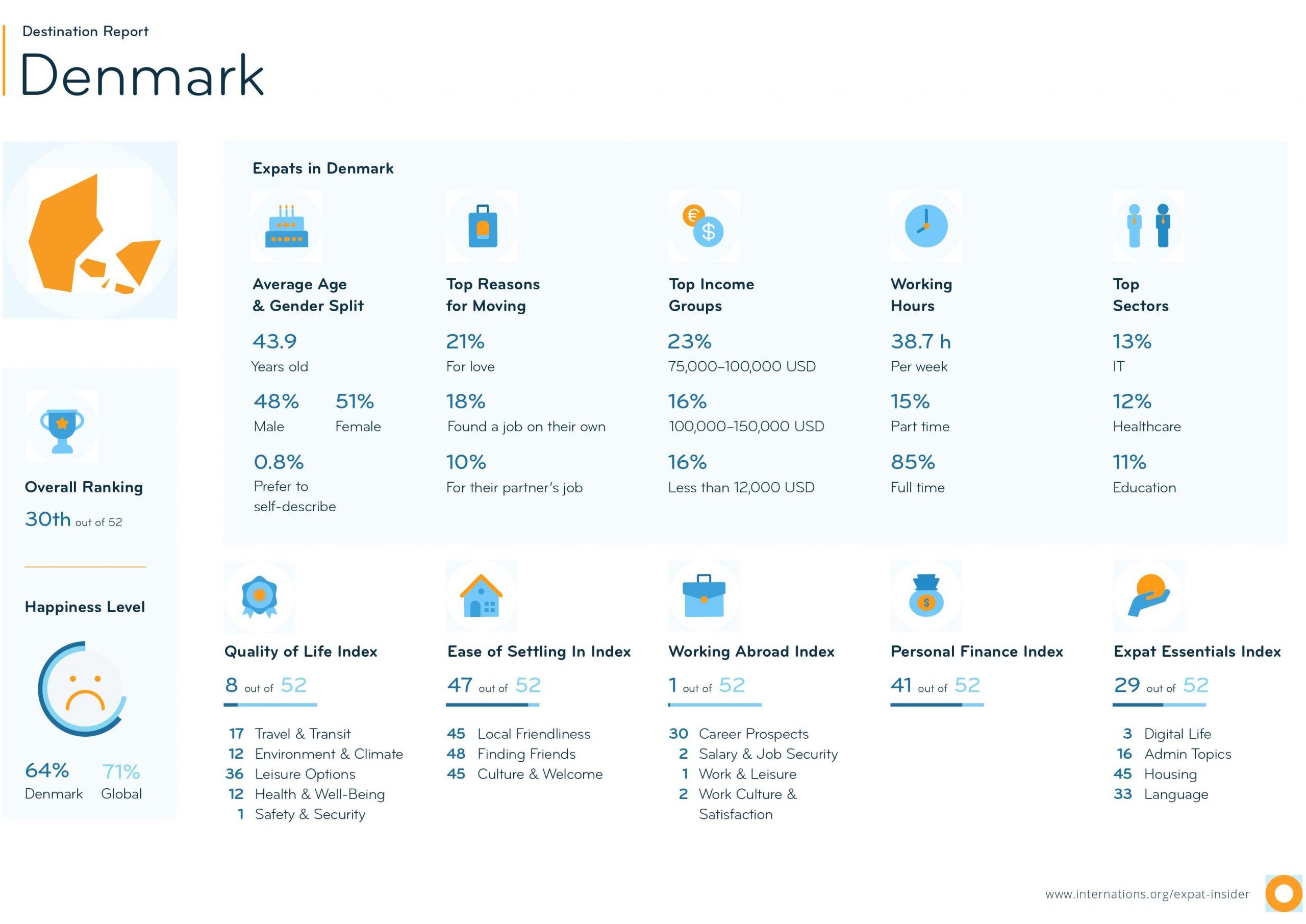News
Denmark in middle of the pack in expat survey
This article is more than 3 years old.
For the ninth time, InterNations has released its ‘Expat Insider’ survey revealing the best and worst destinations for living abroad. This year, it included responses from 12,000 individuals living in 52 countries around the globe – including 128 expats in Denmark

Expats in Denmark are satisfied with the country’s working conditions but find it hard to socialise with Danes (photo: Pixabay/stanvpetersen).
Denmark is neither the best nor the worst place to be an expat, according to the latest survey by InterNations. It’s somewhere in the middle.
In 30th place overall, Denmark was the highest-ranked among the Nordic countries, placing slightly ahead of Finland (32), Norway (34), and Sweden (39). Expats in Denmark were most happy with working conditions and quality of life, but many were dissatisfied with the living expenses and ease of settling in.
Mexico took the top spot, with expats there praising the local friendliness and cost of living. Indonesia, Taiwan, Portugal, and Spain completed he top five, while Luxembourg, Cyprus, Hong Kong, New Zealand, and Kuwait took the bottom spots.
Scoring high for work, quality of living, and sustainability
Denmark ranked first in the ‘Working Abroad’ category, with 76 percent of expats in Denmark reporting they were very happy with their working hours, compared to 63 percent globally. Similarly, 77 percent said they were happy with their work-life balance, compared to 62 percent globally.
Denmark also made it into the top ten for ‘Quality of Life’, taking 8th place spot. In addition, expats in Denmark were generally happy when it came to transportation, with almost all respondents saying they enjoyed the ease of traveling on foot or by bicycle. Around half, however, said that the affordability of public transport was an issue.
Denmark earned another first place for the availability of green goods and services, with more than 80 percent of respondents expressing satisfaction with both the urban environment and the government’s support of environmentally-friendly policies.
However, Denmark was kept out of the top ten in the ‘Environment & Climate Subcategory’ because 52 percent of respondents were unhappy with the climate and weather, compared to 19 percent globally.

Scoring low for affordabilty and friendliness
Living the good life in Denmark comes at a premium, reported most respondents. Overall, 59 percent rated the cost of living negatively, with the cost of housing being a particular cause of concern. Some 42 percent considered housing hard to find, and 59 percent said it was hard to afford.
Despite that, however, 72 percent of respondents felt their disposable household income was enough to lead a comfortable life, and 60 percent were satisfied with their financial situation – both were exactly the same as the global average. Furthermore, 83 percent expressed satisfaction with the affordability of healthcare.
Among all the categories, Denmark’s worst performance was for ‘Ease of Settling In’. Of the 52 countries rated, Denmark came in 47th.
More than a quarter of respondents perceived the local population as unfriendly towards foreign residents, 63 percent said it was hard to make local friends, and 34 percent reported being unhappy with their social lives.










































